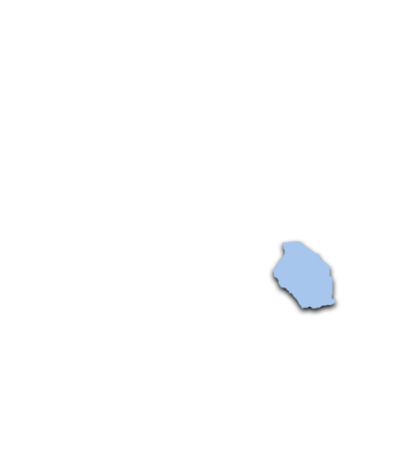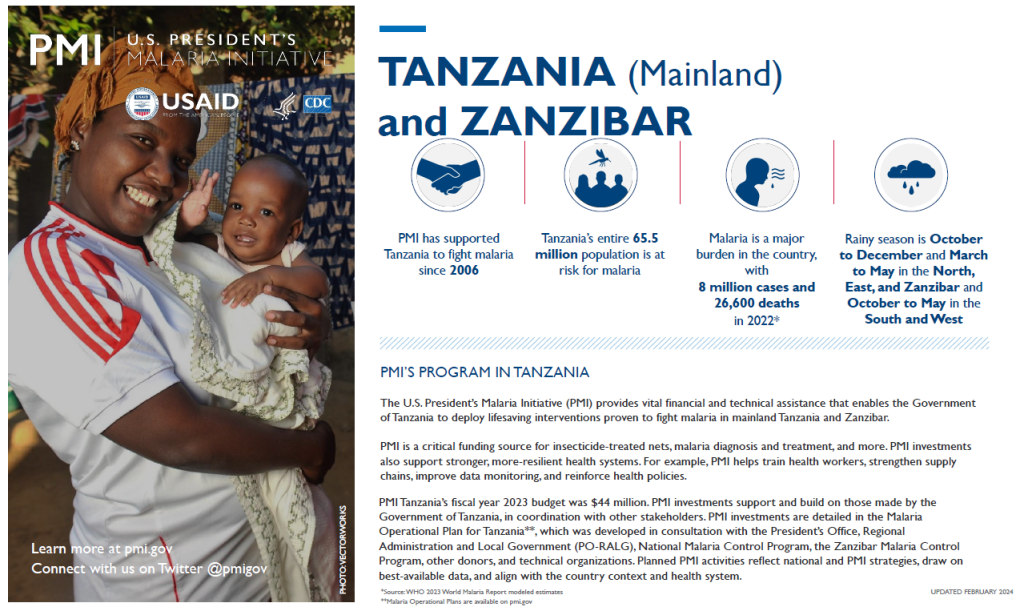TANZANIA

In Tanzania malaria is considered a major public health problem with the entire population at risk of infection. On the Tanzanian Mainland, more than 26 percent of all outpatient visits are attributable to malaria, resulting in an estimated 7.7 million confirmed and clinical malaria cases annually. Dramatic progress in malaria control has been made throughout Tanzania, nearly all malaria indicators improved over the period between 2005 and 2015. Zanzibar adopted a new strategic plan for 2013–2018, focused on malaria pre-elimination. Under this plan, the vision is for Zanzibar to have no locally-acquired malaria cases by 2018. The Tanzanian Mainland continues to focus on malaria control through routine malaria prevention activities and interventions focused in high-transmission areas.
Country Fact Sheet
TANZANIA MALARIA OPERATIONAL PLANS (MOPs)
The Malaria Operational Plans below are detailed 1-year implementation plans for PMI partner countries. Each plan reviews the current status of malaria control and prevention policies and interventions, identifies challenges and unmet needs to achieve PMI goals, and provides a description of planned PMI-funded activities. Each Malaria Operational Plan has been endorsed by the U.S. Global Malaria Coordinator and reflects collaborative discussions with the national malaria control programs and partners in country. Changes to these plans are reflected in revised postings.
Page 1 of 1
Page 1 of 1
STORIES
A Mother’s Love: Preventing and Treating Malaria for Pregnant Women
As a mother to three boys, Dr. Chonge Kitojo knows [...]
Working Towards Malaria Elimination in Tanzania: A Researcher’s View
Social Scientist Yusufu Kionga is driven to end malaria in Tanzania and build healthier communities through research and education.
Harnessing the Power of the Sun to Fight Malaria
Spraying mosquito-busting insecticide in homes is an important tool for fighting malaria, but extreme weather due to climate change can disrupt spraying campaigns. Harnessing solar power is one way to tackle these climate-induced challenges.



